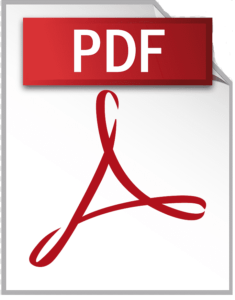
CPCB EPR Battery Waste Management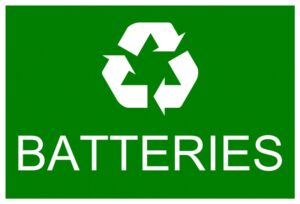

All the Producers of any type of Battery have to obtain Registration from CPCB.
Ministry of Environment Forest and Climate Change notified Battery Waste Management(BWM) Rules on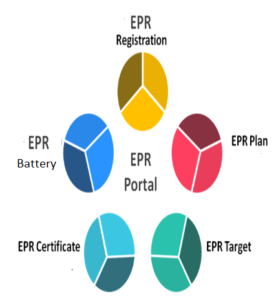 22nd August, 2022 as per which every producer and person or an entity involved in manufacturing of battery shall have to register with CPCB.
22nd August, 2022 as per which every producer and person or an entity involved in manufacturing of battery shall have to register with CPCB.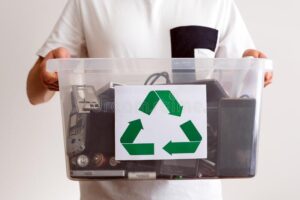
These rules are applicable to all types of batteries regardless of chemistry, shape, volume, weight, material composition and use.
These rules shall apply to, –(i) Producer, dealer, consumer, entities involved in collection, segregation, transportation, re-furbishment and recycling of Waste Battery;
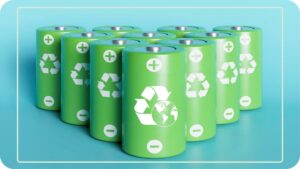 As per these Rules, Producer (manufacturers, importers) shall have the obligation of Extended Producer Responsibility for the battery they introduce in the market and the Producer shall meet the collection and recycling targets as given in Schedule II of the rules to ensure the attainment of EPR obligations.
As per these Rules, Producer (manufacturers, importers) shall have the obligation of Extended Producer Responsibility for the battery they introduce in the market and the Producer shall meet the collection and recycling targets as given in Schedule II of the rules to ensure the attainment of EPR obligations.
According to the Rules, Producers, Recyclers, and Refurbishers of Battery shall have to register through the online centralized portal developed by the Central Pollution Control Board (CPCB). Recyclers and Refurbishers shall also have to register with the concerned SPCB/PCC on this centralized portal developed by CPCB.
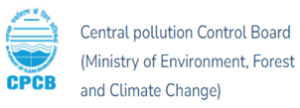 As per the provision under Rule 4 (1), Producer hasthe obligation of Extended Producer Responsibility (EPR) for the Battery that they introduce in the market to ensure the attainment of the recycling or refurbishing obligations. Producers are required to fulfill their EPR obligation by ensuring that waste battery is recycled through certified waste battery recyclers to meet assigned EPR targets.
As per the provision under Rule 4 (1), Producer hasthe obligation of Extended Producer Responsibility (EPR) for the Battery that they introduce in the market to ensure the attainment of the recycling or refurbishing obligations. Producers are required to fulfill their EPR obligation by ensuring that waste battery is recycled through certified waste battery recyclers to meet assigned EPR targets.
 They shallobtain EPR certificatesfrom recyclers according to the quantity of waste batteries recycled by recyclers and use such certificates to meet their EPR targets. This document outlines the Standard Operating Procedure for the Registration of Producers and persons or entities involved in the manufacturing of Battery with CPCB in line with BWM Rules, 2022.
They shallobtain EPR certificatesfrom recyclers according to the quantity of waste batteries recycled by recyclers and use such certificates to meet their EPR targets. This document outlines the Standard Operating Procedure for the Registration of Producers and persons or entities involved in the manufacturing of Battery with CPCB in line with BWM Rules, 2022.
This SOP provides guidance on the filing of applications by Producers/Manufacturers and the processing of applications by CPCB.
| Lead-acid batteries include but are not limited to: car batteries, golf cart batteries, UPS batteries, industrial fork-lift batteries, motorcycle batteries, and commercial batteries.
These can be regular lead–acid, sealed lead–acid, gel type, or absorbent glass mat batteries. These are recycled by grinding them, neutralizing the acid, and separating the polymers from the lead. The recovered materials are used in a variety of applications, including new batteries. |
EPR Battery would act as the single point data repository with respect to orders and guidelines related to implementation of BWM Rules, 2022. Presently Registration of Producer and Generation of EPR Target modules are operational.
EPR Battery Notification & Guidelines |
EPR Battery Sample Certificates |
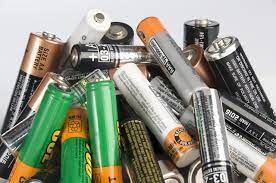 |
 |
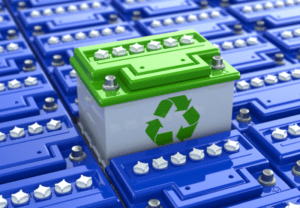 |
THANKS TO VISIT AGAIN




